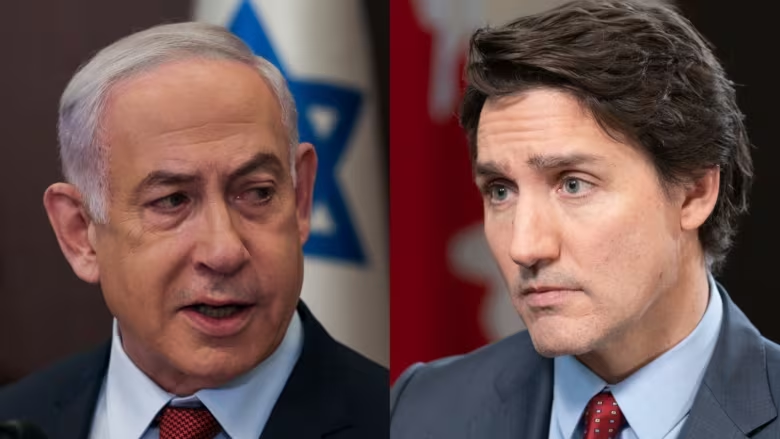
Israeli Prime Minister Benjamin Netanyahu once more dismissed the idea of a two-state agreement in a speech on Thursday. Prime Minister Justin Trudeau expressed that, although Netanyahu's remarks didn't come as a surprise, Canada maintains its stance, viewing the two-state solution as the sole viable path for the region.
In a recent development, Canadian Prime Minister Justin Trudeau has criticized Israeli Prime Minister Benjamin Netanyahu's stance on Palestinian statehood. Netanyahu, in a nationally televised conference, declared the "two-state solution" dead, prompting Trudeau's response during a press conference in Iqaluit. Trudeau emphasized Canada's unequivocal position supporting a two-state solution for a safe and secure Israel and Palestine with internationally recognized borders.
Netanyahu's explicit rejection of a two-state solution potentially escalates tensions with the United States, Israel's key ally. Despite U.S. pressure for a clear road map to a sovereign Palestinian state post-Gaza War, Netanyahu remains steadfast in opposing the two-state idea. His televised address, explicitly stating Israel's need for security control west of the Jordan River, challenges the U.S. commitment to a two-state solution.
Palestinian Delegate to Canada, Mona Abuamara, criticized Netanyahu's speech, particularly highlighting his use of "from the river to the sea," a phrase routinely condemned when used by Palestinians. Israeli Ambassador Iddo Moed deflected questions on post-war arrangements, emphasizing Israel's focus on winning the ongoing conflict.
Netanyahu's government, in power since 2022, has accelerated settlement construction in the Occupied Territories, conflicting with Canada's longstanding policy rooted in the Oslo Accords. Canada, supporting Palestinian self-determination, advocates for a viable, democratic Palestinian state within internationally recognized borders.
Notably, Netanyahu's opposition to a two-state solution is not unique within his cabinet, dominated by West Bank settlers hostile to the idea. Even Benny Gantz, a potential successor, refers to a "two-entity solution," signalling reluctance towards full Palestinian statehood.
While Israeli leaders cite the recent Gaza War as a reason to abandon the two-state concept, the U.S. maintains that the events underscore the need for a two-state solution. U.S. Secretary of State Antony Blinken, at the World Economic Forum, emphasized the non-negotiable nature of respecting Oslo and the two-state principle.
Furthermore, U.S. officials warn that international support for Gaza's reconstruction hinges on Israel committing to a clear path to two states. The estimated costs for reconstruction are substantial, emphasizing the importance of a lasting resolution.
In response to Netanyahu's remarks, Abuamara calls for the international community to implement the Oslo Accords, seeking accountability for Israel. The situation remains tense as key players navigate conflicting positions on the path forward in the Israeli-Palestinian conflict.















